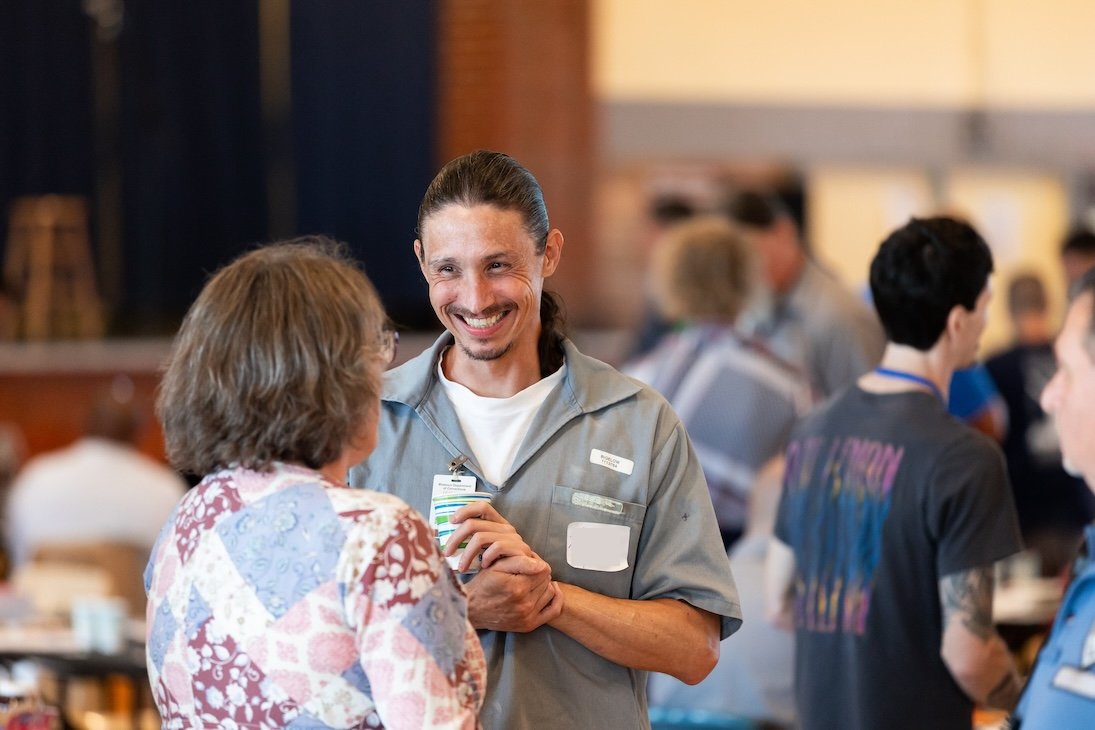Why We Call People Residents
When I first entered prison, the term used to describe us to the outside world was “offender” or “inmate”. On the visiting room tables where I spent so much time with my wife and daughter, the word “offender” was etched into the table with bright red paint, indicating which side of the table I had to sit on. In prison, every time you are called to go to a location in the prison “Offender” is always the term used. “Offender Cornelius, report to the property room.” Using the term “offender” turns the worst thing you’ve ever done into a woefully incomplete definition of a human being.
Calling someone by the term “offender” or a number is dehumanizing and stigmatizing. Corrections officials claim this addresses safety and security concerns around staff and resident relationships (familiarity). I can tell you from my experience that this is the exact opposite. If you always refer to someone by “offender” rather than their given name, they eventually learn to believe they are only defined by the worst thing they’ve ever done. I really view these terms (especially “offender”) as bully terms; they are words used by people with authority to make others feel less than. Every time you hear those words, it's a reminder of where you are, what you did, and who you are. Terms like “offender” and “inmate” are intended to send a negative message and they do, repeatedly.
One of the elements that is so important to helping incarcerated people reenter society is understanding that “you are more than the worst thing you have ever done or the worst thing that has ever been done to you” (Krish Kandiah).
Changing prison culture is a massive undertaking, but there are small steps that can be taken immediately that make huge changes for the people living and working in correctional centers.
Ultimately, the task of making it safely through each day is paramount for everyone who spends their day “inside.”
One form of de-escalation is to add some dignity to the lives of incarcerated people by simply changing the term used to refer to them.
In 2023, the facility where I spent 6 years changed the official term from “offender” to “resident”. This seems like a small and insignificant change to those of us who live freely, but for those who are confined due to incarceration, the added dignity of “resident” helps both staff members and residents get along better.
Even as I type this, Google is trying to auto-suggest “inmate” into my sentences!
The leadership expert Todd Henry states,
“that shift to resident; from offender to resident. I think it’s really important because language is so important, right? How we talk about ourselves, our experiences; it matters. Language matters. And so it’s little things like that, right, that build a leadership culture. And so it’s really encouraging to see that language shifting.”
Todd stated this while attending the Prison Leadership Conference in 2024 at the facility where I was incarcerated. The fact that a full leadership conference could take place in a correctional center with 75 visitors and 75 residents sharing growth and learning of leadership skills and practice began with small changes in culture. The shift from “offender” to “resident” is a small change, but how we speak to and about each other is a huge part of changing culture.


